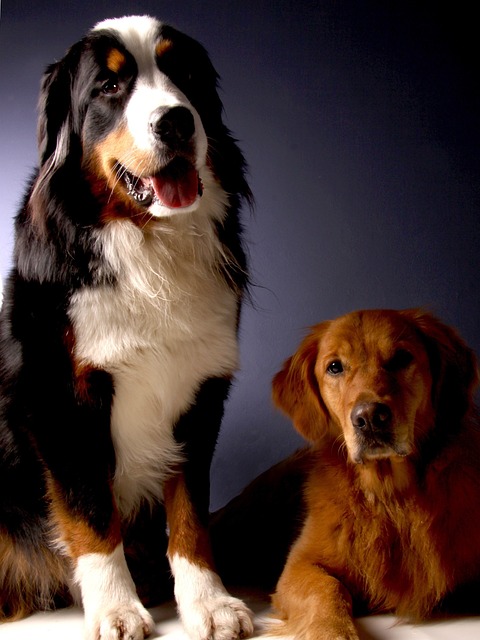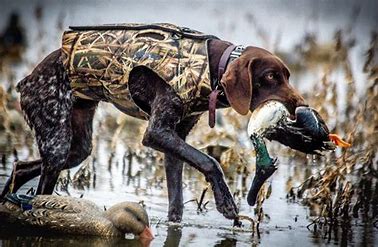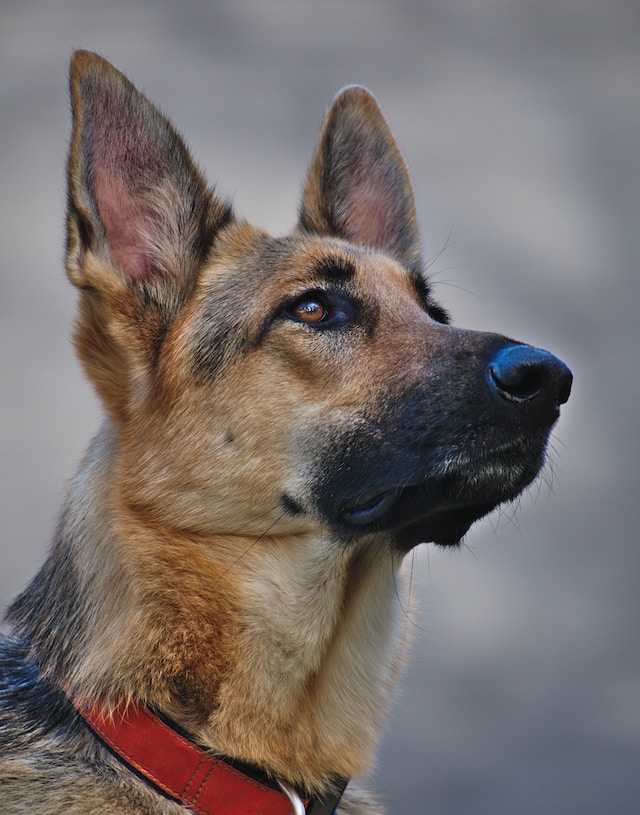Discovering the Beauty of Mexican Dog Breeds (2023 Guide)

Mexican dog breeds? Yes, they exist, and they are as fascinating as they are adorable! Mexico is not only known for its vibrant culture and delicious cuisine, but it is also home to several unique and distinctive dog breeds. From the ancient and mysterious Xoloitzcuintli to the energetic and playful Chihuahua, Mexican dog breeds have a rich history and charm that sets them apart.
In this article, we will explore some of the most popular and beloved Mexican dog breeds, shedding light on their characteristics, origins, and importance in Mexican culture. Whether you are a dog enthusiast or simply curious about the fascinating world of canine companions, join us as we embark on a journey through Mexico’s diverse and remarkable dog breeds.
Characteristics of Mexican Dog Breeds
- Xoloitzcuintli: This ancient breed, also known as the Mexican Hairless Dog, is known for its hairless coat and calm temperament.
- Chihuahua: The smallest dog breed in the world, Chihuahuas are often associated with Mexican culture and are known for their loyalty and feisty personalities.
- Mexican Hairless Dog: The Peruvian Inca Orchid, also called the Mexican Hairless Dog, is a breed renowned for its elegant appearance and affectionate nature.
- Techichi: An ancient breed that shares ancestry with the Chihuahua, the Techichi is a small and sturdy dog known for its loyalty and adaptability.
- Chinese Crested: While not originally from Mexico, the Chinese Crested has become popular in the country. With its distinctive hairless or powder-puff coat, this breed is known for its playful and lively personality.
- Papillon: Although not native to Mexico, the Papillon is popular in the country. Known for their butterfly-like ears, they are intelligent and friendly companions.
- Pitbull Mexicano: Developed in Mexico, the Pitbull Mexicano is a strong and agile breed known for its loyalty, trainability, and protective nature.
- Mayan Cichuahua: An ancient and rare breed, the Mayan Cichuahua is known for its fox-like appearance and agile nature.
- Chiapom: A crossbreed between a Chihuahua and a Pomeranian, the Chiapom combines the traits of both breeds, resulting in a small and spunky dog with a friendly demeanor.
These Mexican dog breeds showcase a diverse array of traits and characteristics, making them unique and valued members of the canine world. Whether it’s their distinct appearance, loyal nature, or playful personalities, Mexican dog breeds are a testament to the rich diversity of the country’s canine heritage.
History and Origin of Mexican Dog Breeds
Mexican dog breeds have a rich history and a unique cultural significance. These dogs are not only beloved companions but also an important part of Mexico’s heritage. The history and origin of Mexican dog breeds can be traced back centuries, with each breed having its own distinct characteristics and background.
One of the most well-known Mexican dog breeds is the Chihuahua. This tiny dog has ancient roots, and it is believed to be descended from the Techichi, a small companion dog bred by the Toltec civilization. Chihuahuas were highly valued by the Aztecs and were often used in religious ceremonies. Today, they are popular all over the world for their small size and lively, spirited personalities.
Another Mexican dog breed with a fascinating history is the Xoloitzcuintli, also known as the Mexican Hairless Dog. This breed is one of the oldest and rarest in the world, dating back over 3,000 years. The Xoloitzcuintli was considered sacred by the Aztecs and was believed to have healing powers. They were often kept as companions and were also used in ancient rituals and ceremonies. The Xoloitzcuintli is known for its unique appearance, with its hairless body and elegant features.
The Mexican Hairless Dog is not the only hairless breed found in Mexico. The Chinese Crested Dog, although not originally from Mexico, has become popular and prevalent in the country. These small, hairless dogs are known for their affectionate nature and unique appearance, with their characteristic crest of hair on their head and tail.
Other Mexican dog breeds include the Mexican Pitbull, known for its strength and agility, and the Perro Callejero, a street dog that has adapted to survive on the streets of Mexico. These street dogs are a mix of various breeds and have become a part of the urban landscape in many Mexican cities.
The history and origin of Mexican dog breeds are a testament to the deep bond between dogs and humans throughout Mexico’s history. From ancient civilizations to the present day, Mexican dog breeds have played an important role in the lives of the people and have become cherished companions and symbols of Mexican culture.
Popular Mexican Dog Breeds
- Chihuahua: The Chihuahua is a small breed known for its lively personality and big attitude.
- Xoloitzcuintli: Also known as the Mexican Hairless Dog, this ancient breed is revered for its loyalty and intelligence.
- Azteca: The Azteca is a medium-sized breed with a strong and agile build, often used as a working dog.
- Labrador Mexicano: This Mexican variety of the Labrador Retriever is prized for its friendly nature and versatility.
- Perro Sín Pelo del Peruano: While not exclusively Mexican, this hairless breed is popular in Mexico due to its unique appearance.
- Mexican Hairless (Crested): A variant of the Xoloitzcuintli, the Mexican Hairless Crested is a companion breed known for its affectionate nature.
These popular Mexican dog breeds embody the rich history and diverse culture of Mexico. Whether you’re looking for a small and feisty companion or a loyal and hardworking partner, these breeds offer a range of options for dog lovers. Remember to consider the specific needs and characteristics of each breed before making a decision, and always choose a reputable breeder or consider adopting from a rescue organization.
Temperament and Personality Traits of Mexican Dog Breeds
Mexican dog breeds are known for their unique temperament and personality traits. These breeds have been shaped by their environment, history, and the roles they traditionally played in Mexican culture. Understanding the temperament and personality characteristics of these breeds can help potential owners choose the right dog for their lifestyle and preferences.
Here are some common temperament and personality traits found in Mexican dog breeds:
- Xoloitzcuintli (Mexican Hairless Dog): Known for their loyalty and affection towards their owners. They are intelligent, alert, and make excellent companions.
- Chihuahua: Chihuahuas are often confident, bold, and possess a lively personality. They are known for their small size and big personalities.
- Mexican Hairless Terrier: These terriers are energetic, playful, and have a strong prey drive. They are also known for their loving and loyal nature.
- Perro de Presa Canario (Canarian Mastiff): Canarian Mastiffs are known for their protective and confident nature. They are loyal, calm, and make excellent guard dogs.
- Mexican Pitbull: Mexican Pitbulls are intelligent, strong, and active dogs. They are known for their loyalty, trainability, and loving nature towards their families.
- Pomeranian: Pomeranians are often vibrant, friendly, and playful. They can be quite vocal and have a strong personality despite their small size.
- Tepozteco: Tepoztecos are agile, alert, and easily trainable dogs. They have a playful and friendly nature, making them good companions for active individuals.
It is important to note that individual dogs within a breed can still exhibit unique personalities and temperaments. Proper socialization, training, and providing a loving environment can contribute to a well-rounded and balanced dog, regardless of breed.
Training and Exercise Needs of Mexican Dog Breeds
Mexican dog breeds are known for their unique characteristics and heritage. Like any other dog breed, they have specific training and exercise needs to ensure their well-being and happiness. Understanding these needs and incorporating appropriate training and exercise routines can help Mexican dog breeds thrive and lead fulfilling lives.
Mexican dog breeds often possess high energy levels and intelligence. They can be eager to learn, making training an essential aspect of their overall care. Consistent and positive reinforcement-based training methods work well with these breeds, as they respond positively to rewards and praise. Early socialization is also crucial to ensure they grow up to be well-rounded and confident dogs.
Exercise is equally important for Mexican dog breeds to maintain physical and mental stimulation. Regular exercise helps prevent behavioral issues and promotes overall health and fitness. Providing opportunities for both mental and physical exercise can help them expend their energy in a positive way. Daily walks, playtime, and engaging toys or puzzle games are great ways to keep them mentally and physically stimulated.
Grooming Requirements of Mexican Dog Breeds
Mexican dog breeds are known for their unique and beautiful coat types, which require specific grooming techniques to keep them looking their best. Whether your Mexican dog breed has a short, smooth coat or a long, fluffy coat, proper grooming is essential to maintain their overall health and appearance. Here are some grooming tips and considerations for Mexican dog breeds:
Short-Coated Mexican Dog Breeds: Mexican dog breeds with short coats, such as the Mexican Hairless (Xoloitzcuintli) or the Chihuahua, generally require less grooming compared to long-haired breeds. However, regular brushing with a soft bristle brush or grooming glove can help remove dead hair and keep their coat sleek and shiny. Additionally, occasional bathing with a gentle dog shampoo is recommended to keep their skin clean and healthy. It is also important to regularly check their ears, eyes, and nails for any signs of infection or overgrowth.
Long-Coated Mexican Dog Breeds: Mexican dog breeds with long coats, like the Mexican Longhair or the Mexican Shepherd (Chihuahua Longcoat), require more extensive grooming to prevent matting and keep their coat tangle-free. Daily brushing with a slicker brush or a comb is necessary to remove any tangles or knots. Pay extra attention to areas prone to matting, such as behind the ears and under the armpits. Regular bathing with a suitable dog shampoo and conditioner can help keep their coat clean and manageable. It is also important to check their ears, eyes, and nails regularly and trim any excess hair around these areas, if necessary.
In addition to regular brushing and bathing, all Mexican dog breeds benefit from other grooming practices, such as dental care and nail trimming. Brushing your dog’s teeth regularly and providing appropriate chew toys can help maintain their oral health and prevent dental issues. Trimming your dog’s nails regularly, using a dog-specific nail trimmer, can prevent them from becoming too long and causing discomfort or injury. Finally, it is essential to regularly check your dog’s skin for any signs of irritation, fleas, or ticks and consult with a veterinarian if any concerns arise.
By following these grooming tips and providing regular care for your Mexican dog breed, you can ensure that they not only look their best but also stay healthy and comfortable. Every dog is unique, so it’s important to adapt your grooming routine to their specific needs and consult with a professional groomer or veterinarian if you have any questions or concerns.
Health Considerations for Mexican Dog Breeds
When it comes to Mexican dog breeds, it’s important to be aware of certain health considerations to ensure their well-being and longevity. While these breeds are generally healthy and resilient, there are a few common health issues that may affect them. By understanding these considerations and taking appropriate measures, you can help your Mexican dog breed live a happy and healthy life.
Allergies: Some Mexican dog breeds, like the Chihuahua, may be prone to allergies. These can be caused by environmental factors like pollen or dust, or by specific food ingredients. If you notice your dog experiencing symptoms such as itching, redness, or digestive upset, consult with a veterinarian to identify and manage any allergies.
Dental Health: Dental care is essential for all dog breeds, including Mexican breeds. Poor dental hygiene can lead to gum disease, tooth loss, and other health issues. Regular brushing, dental treats, and professional cleanings can help prevent dental problems and keep your dog’s teeth clean and healthy.
Patellar Luxation: Patellar luxation, or dislocated kneecaps, can be a concern in some Mexican dog breeds, particularly the Xoloitzcuintli. This condition can cause lameness and discomfort for the dog. Regular exercise, maintaining a healthy weight, and providing joint-supporting supplements if recommended by a veterinarian can help manage this condition.
Obesity: Mexican dog breeds, like any other breed, are susceptible to obesity if not provided with appropriate diet and exercise. Obesity can lead to various health problems, including joint issues and an increased risk of heart disease. Ensure your Mexican dog breed maintains a healthy weight through a balanced diet and regular exercise.
Heat Sensitivity: Some Mexican dog breeds, such as the Chihuahua, may be more sensitive to heat due to their small size and thin coat. It’s important to protect them from extreme heat and ensure they have access to shade and fresh water during hot weather. Limit their exposure to high temperatures to prevent heatstroke or overheating.
Eye Health: Mexican dog breeds, including the Mexican Hairless breeds, can be more prone to certain eye conditions. Regular eye examinations by a veterinarian and proper eye hygiene can help detect and manage any eye issues and ensure optimal eye health for your Mexican dog breed.
By being proactive in your Mexican dog breed’s healthcare and addressing any potential health concerns, you can provide them with the best possible quality of life. Regular veterinary check-ups, a nutritious diet, exercise, and preventive measures will help keep your Mexican dog breed happy and healthy for years to come.
Famous Mexican Dogs in History and Pop Culture
- Xoloitzcuintle: Also known as Xolo, this ancient Mexican dog breed was considered sacred by the Aztecs and Mayans. It is known for its elegant appearance and loyal nature.
- Chihuahua: Originating from the state of Chihuahua in Mexico, this small dog breed has gained widespread popularity due to its adorable size and big personality.
- Techichi: An ancient Mexican companion dog, the Techichi is believed to be an ancestor of the Chihuahua. It was prized by the Toltecs and Mayans for its companionship and believed to have mythical powers.
- Mexican Hairless Dog: Known as the “Perro Pelón Mexicano” in Spanish, this unique breed is famous for its lack of hair and warm, affectionate nature.
- Pit Bull Terrier: While not exclusive to Mexico, the Pit Bull Terrier has gained prominence in Mexican culture due to its popularity in dog fighting. Efforts have been made to change the negative perception surrounding this breed.
Mexican dog breeds have played significant roles in history and continue to capture the hearts of dog lovers worldwide. From the ancient Xoloitzcuintle to the iconic Chihuahua, these dogs represent Mexican heritage and have made their mark in pop culture.
Conclusion
Mexican dog breeds are a testament to the rich diversity and cultural heritage of Mexico. Whether it’s the ancient Xoloitzcuintli or the popular Chihuahua, each breed showcases unique characteristics and traits that make them valued members of the canine world.
While there are specific grooming, training, and health considerations for Mexican dog breeds, with proper care and attention, these dogs can lead fulfilling and healthy lives. It’s important to provide them with appropriate exercise, grooming, and veterinary care to ensure their well-being.
From their historical significance to their presence in pop culture, Mexican dog breeds have left their mark on the world. They continue to bring joy, companionship, and a touch of Mexican culture to dog owners around the globe.






